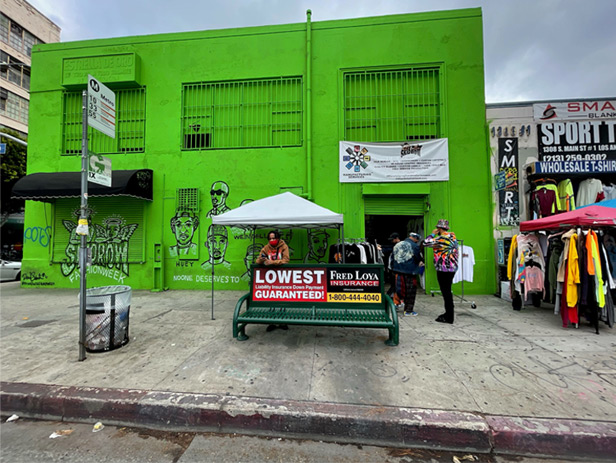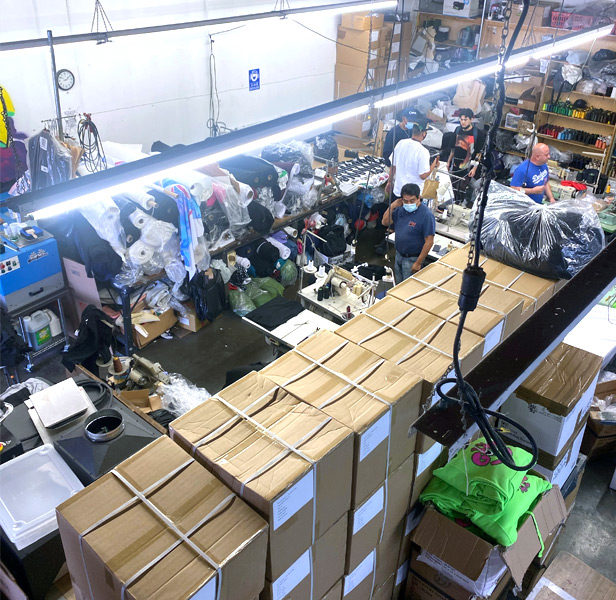Strategy October 22, 2021
Los Angeles Decorator Aims To Tackle Homelessness
SkidRow Manufacturing is a print shop and social enterprise that hires homeless and at-risk people.
The tagline of SkidRow Manufacturing is “Changing the world, one T-shirt at a time,” and it’s a mission Rich Marshall takes seriously.
“The whole model and the whole mission, no matter what, is to sell more shirts to help more people,” says the Los Angeles man and apparel industry veteran. “I didn’t want to do clothing anymore if I couldn’t help anyone and couldn’t be a part of the solution here.”

SkidRow Manufacturing in Los Angeles is an apparel decorating shop and social enterprise that aims to help transition people out of homelessness, in part through job training.
Marshall co-founded SkidRow Fashion Week, a fledgling streetwear brand, with recording artist David Sabastian as way to help transition people out of homelessness in the downtown L.A. neighborhood.
The apparel decorating shop is in L.A.’s fashion district, operating out of an unassuming corner shop that’s basically a glorified garage. “It’s very humble,” Marshall says. Right now, the shop consists of two four-head manual screen-printing presses and an embroidery machine. For larger, more complex jobs and direct-to-garment printing, Marshall outsources to other shops, but he’s hoping once his concept catches on and gains more steam that he’ll be able to upgrade his space and add more and better equipment.

SkidRow Manufacturing provides employment to homeless and at-risk people, helping them create streetwear and other decorated apparel.
SkidRow Manufacturing hires homeless and at-risk people to work part time in the shop, teaching them screen printing, embroidery and other apparel decorating techniques. The idea is first to help them find stability through paid work, while teaching a marketable skill, but also to help empower them to start their own apparel lines one day. “The individuals who work for us are encouraged to come up with a product that we can help manufacture so we can empower them,” Marshall says. “Everyone should have an opportunity to self-express artistically that works for them.”
The SkidRow brand launched in 2019 with $2,000, according to a WWD profile. Marshall and Sabastian started off selling their streetwear at flea markets. In addition to providing job training and temporary employment, the brand also regularly distributes donations of clothing, food and other supplies to people living in Skid Row.
Over the summer, the brand had a popup event outside high-fashion retailer Dover Street Market, raising $25,000 to help the homeless. “It’s one of the most selective retailers in the world,” Marshall says. “Our product was 10 feet away from Gucci and Vetements.”
Through its online store, SkidRow Fashion Week has also sold apparel across the country and beyond. “Those individuals that no one would hire were selling internationally,” Marshall says.
Marshall and Sabastian are hoping to find funding to scale the business and formalize SkidRow Manufacturing’s training program, as well as its altruistic aspect, telling WWD that they aim to giveback 10% of their profits.
“Once this explodes, we have big-picture ideas of buying land and creating opportunities for transformational learning,” Sabastian told WWD.
